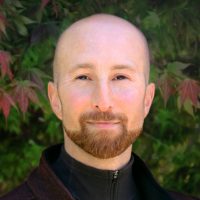As a dream researcher and avid astral explorer of more than a decade, people often write to me seeking advice about their lucid experiences.
In a recent email, for example, my friend J. said that one night he became lucid and began to fly.
Suddenly, he remembered a conversation we’d had about dream yoga.
We’d last seen each other two months prior and when our discussion turned to dreams, I’d suggested that if and when he found himself consciously aware that he was dreaming—i.e., lucid—he try something novel.
I told him to talk to God.
Well, not exactly—allow me to explain.
According to the descendants of the Tibetan Bön & Dzogchen traditions, dream yoga has existed in one form or another for over 1,700 years and most likely has appeared in crude forms since humans began dreaming. What this means—to put it bluntly—is that we Westerners don’t know much about dreams, at least compared to those luminaries and the innumerable Eastern and indigenous cultures throughout the world for whom the veil between waking and dreaming is virtually non-existent.
More specifically, some degree of dream lucidity may be the norm amongst shamanic peoples and, while rare, there exists refined methods for mastering these further reaches of consciousness.
Now, this isn’t to say that indigenous peoples can’t tell the difference between the two worlds of waking and sleep. Rather, they don’t regard their dreams as unreal.
Thanks to Sigmund Freud’s prejudiced yet amply marketed dream theories of the early 1900s, to this day the average Westerner believes the content of their evening sojourns is, at worst, meaningless and, at best, symbolic.
Convinced that dreams are nothing more than imaginary and often chaotic representations of our unresolved, waking life conflicts and repressed, unconscious desires—that what we saw last night was “just a dream”—we inadvertently prioritize waking reality while demoting the dreamtime.
Herein lies one of the greatest tricks the devil ever pulled, right there alongside microwaves, which basically aren’t good for anything other than reheating stale coffee. But I digress…
Granted, Freud wasn’t entirely off the mark—many dreams are symbolic (though if you’re hoping to crack the code, it’s best to throw away your dream dictionary and join a dream group or fend for yourself). Likewise, waking physical reality is literally the soup du jour in our contemporary Western culture—it’s the sticky dimension where “real” life happens… or is it?
What if we were to imagine a world where we’re awake just long enough so that we can get back to our dreams, to a place where anything is possible. Yes, this is the stuff of science fiction, but we wouldn’t be the first to think this way, or at least to consider striking a finer balance between the two realms.
Remember the Taoist philosopher Chuang Tzu’s enduring question: Are we humans dreaming we’re butterflies, or butterflies dreaming we’re humans?
Given that lucid dreaming is clearly trending right now, it appears that this cultural revolution may be well underway. But, like most fads, we’re liable to have a lick and move on without ever having gotten to the center of the tootsie pop (which, as we all know, takes thhhrrrreeee licks!).
Every other day there’s a new article raving about the untold marvels of controlling your dreams—so many, in fact, that lucidity and control are becoming synonymous. I can’t help but feel that we’re missing the bigger picture, and an indelible and magical art of self-discovery is on the verge of bastardization.
Now that we’re up to speed, allow me to clarify what I meant when I suggested that my friend “talk to God” in his lucid dream.
Any seasoned lucid dreamer will tell you that the dreamtime is not only real but also, in many cases, more real than being awake. Often this realization sets in after the dreamer has learned that he or she is capable of incredible feats yet cannot control everything in the dream.
Further investigation reveals that all the while there’s a higher power or Awareness occupying the background and occasionally nudging you this way or that.
Here’s the best part: this governing force—call it God, your Unconscious, Higher Self, etc.—is responsive. In other words, you can speak with it, ask it questions, receive invaluable insight and, in some cases, even perform miracles (like physical and emotional healing) that carry over into the waking world.
So, the next time you find yourself lucid, you might try not controlling anything. Instead, stop what you’re doing and ask aloud, “What’s the Highest?”
Then let go of the reigns, sit back, relax, enjoy the ride and, if you’d like, leave a comment or send me an email letting me know what you find out.
Love elephant and want to go steady?
Sign up for our (curated) daily and weekly newsletters!
Editor: Emily Bartran
Photo: Hartwig HKD/Flickr



Read 37 comments and reply